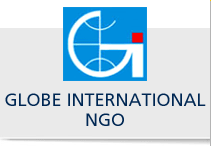INDEPENDENT MEDIA
Democratic Elections
and Media
EVVALUATION
SURVEY REPORT
CONDUCTED AMONG THE PUBLIC AND JOURNALISTS
PREFACE
More than 10 years have been passed since free press
has became a reality in Mongolia. During this period
the Mongolian journalists experienced 4 democratic elections
of the Parliament.
The present survey was conducted by Globe International,
a Mongolian NGO in the framework of project " Democratic
elections and media", which was financially supported
by UNESCO. It was aimed at testing public opinion how
Mongolian media was balanced and fair during the Parliamentrain
Elections held in June 27, 2004 and exposing challenges
and difficulties that Mongolian journalists face in
covering elections.
Survey involved 500 citizens aged above 18 and 200 journalists
working in the news and current affairs from 30 media
outlets, which represent app. 10% of working journalists.
Media freedom is one of fundamental prinicples of democracy
and an essential part of human rights. So the public
opinion on media actions should be the main reference
document for mass media in fulfilment of their duties
to be public watchdog.
We deeply express our many thanks to UNESCO in running
the project and conducting this survey.
H.Naranjargal,
project leader
I. PUBLIC
OPINION
1.1. FRAME
There are many things
that affect the results of election campaign and voting
but media plays the main role. It is important that
media disseminate balanced, objective and fair election
information. That is why media should be independent
from any political parties, coalition or movement acting
professionally and serve the only public interest. Media
has duty to fairly assist the voters in exercising thier
right to know accessing impartial and balanced information
on activities of all parts involved to the elections.
It depends how media is professional and ethical during
the elections.
Questionaires distributed to 500 citizens residing in
Ulaanbaatar city, where the most of media outlets are
concertrated.
Table 1. Age categories
Survey involved all
the age categories and their educational background
shows sufficient social representation
Table 2.
Education
№ |
Status |
QTY |
% |
| 1. |
Secondary school |
37 |
7.4 |
| 2. |
High school |
153 |
30.6 |
| 3. |
High |
222 |
44.4 |
| 4. |
Other |
88 |
17.6 |
| |
500 |
100% |
1.2. HOW
DID MEDIA WORK DURING THE ELECTIONS?
Broadcasting is the
most effective and influencial media. Waves they use
are public property and there is always limited access.
According to international standards broadcast media
must serve the public providing fair and balanced information
on election campaign. Private print media is permitted
to announce their preferences. 86% of respondents said
that they received election information from media and
14% from other sources such as billboards, promotional
fliers and etc. 91.4 % of those used TV.
Table 3. Information received by the public
№ |
Type of
media outlet |
QTY |
% |
| 1. |
TV |
457 |
91.4 |
| 2. |
Radio |
99 |
19.8 |
| 3. |
Newspaper |
266 |
53.2 |
| 4. |
Magazine |
10 |
2 |
| 5. |
Other |
70 |
14 |
To question "
Was the information sufficient to make your choice?"
51.2% said it was not sufficient and 48. 4% think it
was sufficient. 0.4% respondents did not reply. Those,
who considered the information was not sufficient, explained
what kind of information they wanted in the following
ways:
Table 4.
The most wanted information
№ |
Type of
information |
QTY |
% |
| 1. |
Debates of candidates |
162 |
63.3 |
| 2. |
Analytical programs and articles |
106 |
41.4 |
| 3. |
Information devoted to voters' education |
42 |
17.2 |
| 4. |
Other |
23 |
8.9 |
1.3. HOW
FAIR DID ACT MONGOLIAN MEDIA?
67.8% respondents
insist that Mongolian media could not act fairly enough
during the elections. 17.4% think media was fair and
14.8 % said they did not have any ideas. From 335 persons,
who focused on unfairness, 73.4% consider media served
one party.
Table 5.
Unfairness occured
№ |
How unfairness
occured |
QTY |
% |
| 1. |
Served one party |
246 |
73.4% |
| 2. |
Information is not balanced |
194 |
57.9% |
| 3. |
Journalists called citizens to vote for certain
candidate |
124 |
37% |
| 4. |
Journalists expressed their own opinions |
77 |
15.4% |
| 5. |
Did not distinguish paid and unpaid advertising
|
74 |
22% |
| 6. |
Did not metion information sources |
67 |
20% |
92.5% of respondents
said unfaireness occured on TV and 15.2% of respondents
said radio was not fair. Others metion newspapers. Respondents
were asked to name the most unfair television channel
and results are below.
Table 6.
TV channels covered elections unfairly
№ |
TV channels |
% |
| 1. |
Mongolian National TV |
75.1 |
| 2. |
TV 9 |
39.5 |
| 3. |
TV 5 |
34.8 |
| 4. |
UBS |
17.5 |
| 5. |
Channel 25 |
10.5 |
| 6. |
All channels |
6 |
|




